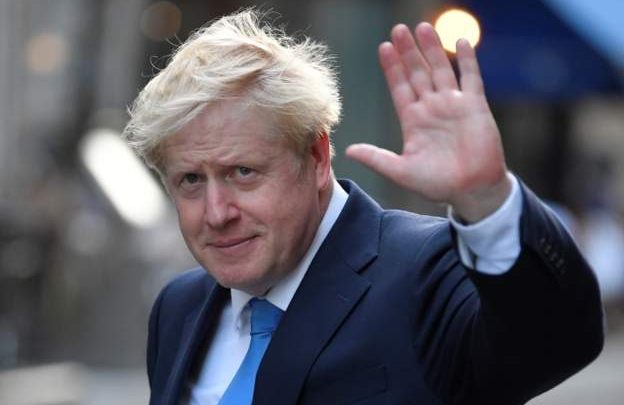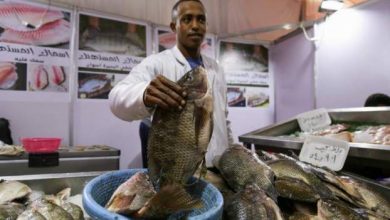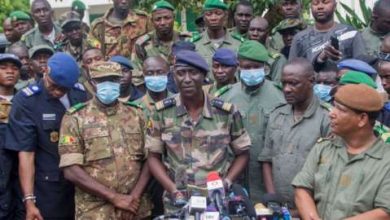International
Boris Johnson: New PM to form government after taking office

Boris Johnson will head to Downing Street later after he takes over from Theresa May as prime minister.
The new Conservative leader will take office on Wednesday afternoon following an audience with the Queen at Buckingham Palace.
After entering Number 10, he is expected to announce a clutch of senior cabinet posts, including chancellor of the exchequer and home secretary.
Sources close to Mr Johnson say his top team will reflect “modern Britain”.
He is expected to use the opportunity to increase the number of women in full cabinet positions and boost the representation of ethnic minorities.
Mr Johnson won a decisive victory over Foreign Secretary Jeremy Hunt in a ballot of Tory members – gaining a 66.4% total share of the vote.
Conversations are said to be “ongoing” between Mr Hunt and Mr Johnson about the foreign secretary’s next role.
The BBC’s Laura Kuenssberg says Mr Johnson’s choice of his top team is critical in his efforts to bring the warring factions of his party together.
Mr Johnson is resolute that his leadership rival should not stay on at the Foreign Office, but Mr Hunt is firm that he won’t accept anything less than his current role – or becoming home secretary, chancellor or deputy prime minister – and considers other moves a demotion.
Our political editor says it is a risky decision for the new PM – forcing Mr Hunt out would be a bad move in terms of uniting the party, but giving in to his refusal to budge is a challenge to his authority.
Meanwhile, Dominic Cummings, the former chief of the Vote Leave campaign, is expected to become a senior adviser to the new prime minister.
David Frost, a former ambassador and senior official at the Foreign Office, will be appointed as a key negotiator on Brexit.
After his victory, Mr Johnson said his priorities were to deliver Brexit, unite the country and defeat Labour leader Jeremy Corbyn.
Another key decision he faces is who will take over at the Treasury after Chancellor Philip Hammond signalled his intention to resign if Mr Johnson became leader.
Those said to be in the frame include Home Secretary Sajid Javid, former Brexit Secretary Dominic Raab and Liz Truss, Mr Hammond’s current deputy at the Treasury.
All the makings of a disaster?
Boris Johnson’s political inheritance has all the makings of a disaster.
He has no Commons majority. There is no mandate from the general public – remember this election has only been decided by Tory members.
There are policy problems everywhere in sight, whether that’s trying to solve the conundrums of Brexit with a reluctant EU and a divided party, or trying to address deep-seated problems at home.
And just as among his fans there is genuine excitement that he will, at last, be in Number 10, there is scepticism and disbelief from the opposition parties, and double-sided concerns in his own party.
Sweeping changes are expected in the wider cabinet, with a number of other ministers, including Justice Secretary David Gauke and Development Secretary Rory Stewart, having said they cannot serve under Mr Johnson due to his determination to leave the EU, with or without a deal, on 31 October.
Those tipped for promotion include Employment Minister Alok Sharma and Local Government Minister Rishi Sunak.
Priti Patel could return to the cabinet less than two years after resigning as international development secretary over a row over unauthorised meetings with Israeli officials.
Speaking to reporters on Tuesday, Ms Patel said she did not want to “speculate” on a potential cabinet role, but added it was “important that we have a government that reflects modern Britain”.
And former Sports Minister Tracey Crouch, who quit last year in a dispute with the Treasury over fixed-odds betting terminals, could also be in line for a recall.
A source close to Mr Johnson said: “Boris will build a cabinet showcasing all the talents within the party that truly reflect modern Britain.”
What happens when?
Wednesday 12:00 BST onwards: Theresa May takes part in her last Prime Minister’s Questions. After lunch she will make a short farewell speech outside No 10 before travelling to see the Queen to resign.
Boris Johnson will then arrive for an audience at Buckingham Palace where he will be invited to form a government.
After that he will make a speech in Downing Street before entering the building for the first time as prime minister.
Later, he will begin announcing his most senior cabinet appointments, such as chancellor, home secretary and foreign secretary, and will make and take his first calls from other world leaders.
Thursday: Mr Johnson is expected to make a statement to Parliament about his Brexit strategy and take questions from MPs. Parliament will break up for its summer recess later.
The new PM will also continue announcing his new cabinet.
Mr Johnson will inherit a wafer-thin parliamentary majority and, like his predecessor, will continue to rely on the support of the Democratic Unionists of Northern Ireland to govern.
Labour, the Lib Dems and the SNP have said they will oppose him over Brexit, although they have stopped short of threatening an immediate vote of no confidence.
Shadow international trade secretary Barry Gardiner said “discussions are ongoing” between Labour and potential Tory rebels to find out who might support such a vote.
He told Radio 4’s Today programme it was “the nuclear option” which should be “used carefully”.
Brexit Party leader Nigel Farage has said he is open to an electoral pact with Mr Johnson – if the new Tory leader is genuine about taking the UK out of the EU on 31 October.
Mr Farage said Mr Johnson would need to call an election if he wanted a no-deal Brexit, in order to “change the arithmetic” in the Commons.
But Health Secretary Matt Hancock, who is part of Mr Johnson’s transition team, said the incoming PM didn’t want to see an early election.
“There is no way that we are going to have any kind of electoral pact with the Brexit Party and Nigel Farage,” he told the Today programme.
US President Donald Trump, speaking to a right-wing youth organisation in Washington DC, said Mr Johnson and Mr Farage would do “tremendous things” together.
Source: BBC


